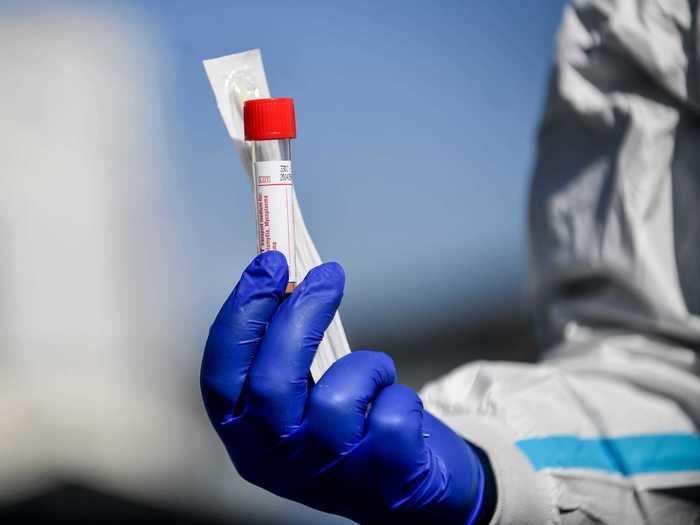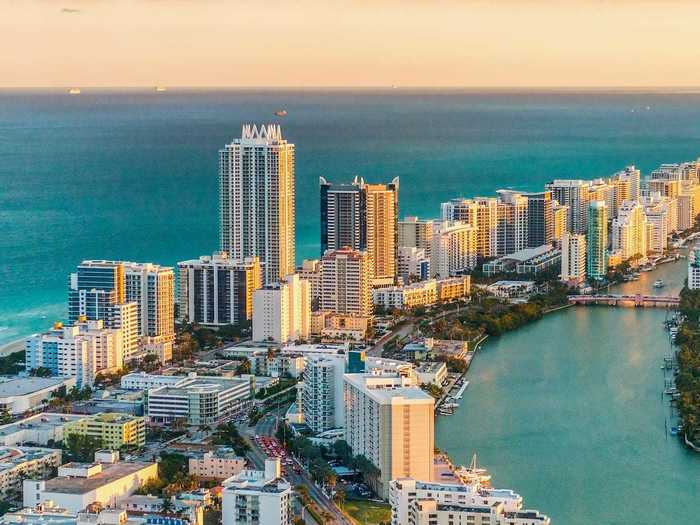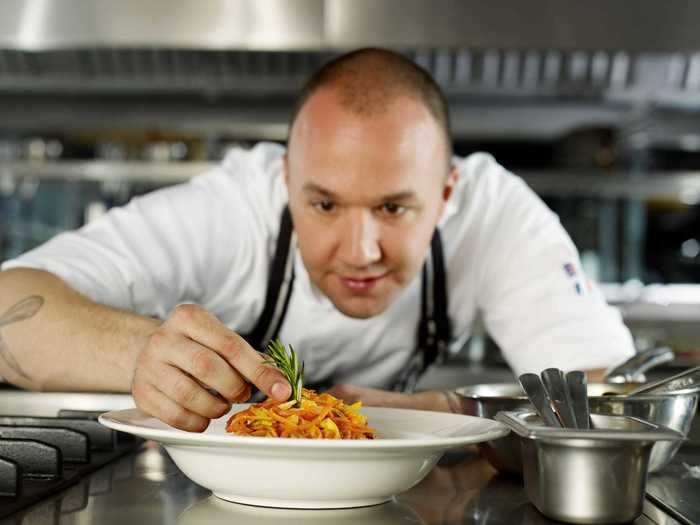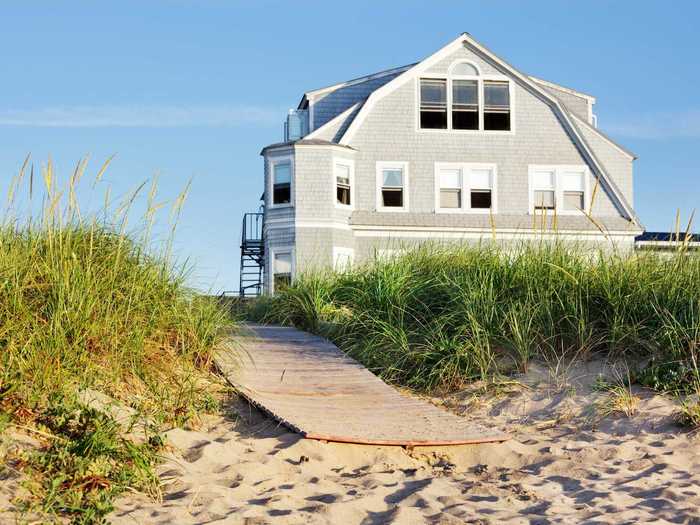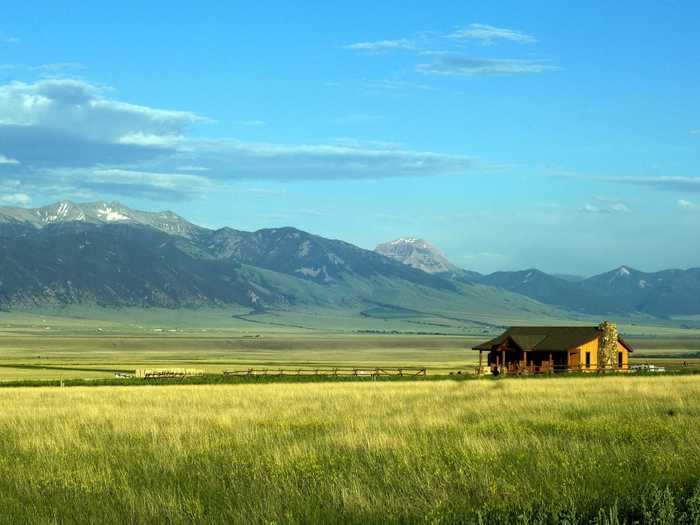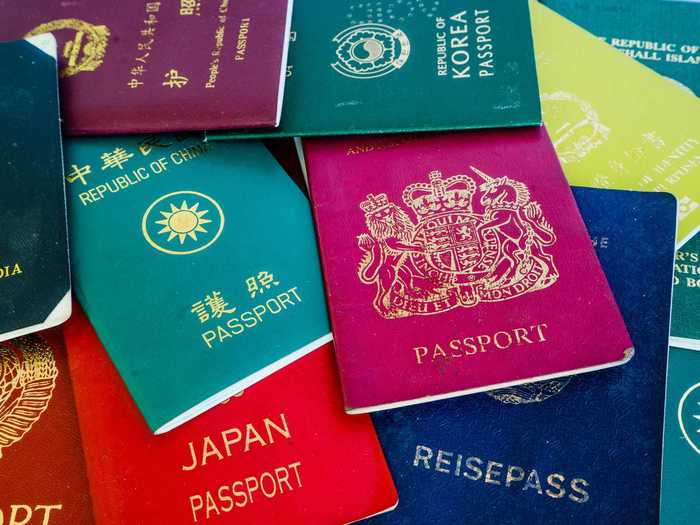The pandemic has created new status symbols.Gotham/Getty Images
- The ultrawealthy are using new status symbols to flaunt their wealth in the age of coronavirus.
- Hiring concierge doctors and living in luxury condos that offer antibody testing amenities signal that they're better off in health.
- Riding out the pandemic in a vacation home with their household staff shows that they have the means for a luxury quarantine experience.
The coronavirus pandemic has ushered in a new era of status symbols.
When the ultrawealthy no longer have anywhere to go with their Goyard handbag and their $900-a-month gyms are shut down, they find other ways to flaunt their wealth. In a time when the pandemic has stripped their feelings of invincibility, they've taken control by elevating current status symbols and creating new luxuries for a more plush pandemic experience.
Like the rest of the world, their sense of safety has been diminished. But easier access to testing — through hiring concierge doctors or living in luxury buildings that offer testing as an amenity — shows they're ahead of the game health-wise.
And riding out the pandemic in a vacation home, ranch, or other country signifies that their quarantine experience is far more luxurious than the rest of the world's.
These six new status symbols amid the coronavirus pandemic are shining a light on the vast disparities between the rich and poor in America.
Read the original article on
Business Insider
Concierge doctors
Claudio Furlan/LaPresse via AP
When the US faced a shortage of diagnostic testing in the beginning of the coronavirus pandemic, some ultrawealthy Americans began hiring concierge doctors to test them for coronavirus. This allowed them to bypass the CDC's strict testing criteria and long wait times for results.
One Los Angeles-based concierge doctor told Business Insider's Taylor Nicole Rogers that the test is included in her $1,500 fee for a house visit, which is actually less than what one might pay if they were tested at the emergency room.
Concierge physicians told Rogers that having a doctor on retainer often ends up saving patients time and money in a crisis, as compared to urgent care and emergency room visits. The biggest perk the fee buys is personalized medical attention.
Luxury buildings with antibody testing amenities
pisaphotography/Shutterstock
Luxury buildings have been stepping up their amenity game. Wellness amenities, such as outdoor yoga decks and tranquility gardens, were already on the rise before the pandemic. Now, they're taking shape in the form of free COVID-19 antibody testing.
The Continuum, a 522-unit luxury condominium building in South Beach, Miami, recently partnered with doctors from USA Sports Medicine and Mount Sinai hospital for a three-day pop-up COVID-19 antibody testing event.
"We're redirecting our funds to things that are more important to our residents right now, which is health and safety," Rishi Idnani, managing director of The Continuum, told Amy Dobson of Forbes.
Luxury buildings are also offering quarantine activities as amenities. Dobson and Brick Underground's Jennifer White Karp each separately reported that some luxury buildings in New York City are now offering virtual celebrity cooking sessions, drawing classes, and performances by Broadway singers during lockdown.
Quarantining with household staff
gerenme/Getty Images
Household staff have long been a status symbol among the rich, but having this luxury during lockdown has elevated such status. Some of the elite are asking their household staff to quarantine with them indefinitely — and paying a premium to do so.
Peter Mahler, head of Mahler Private Staffing, told Katherine Clarke for The Wall Street Journal that about 40% of his clients have quarantined with their staff. In a time when unemployment claims have reached a record high, staff are facing enticing offers to quarantine: as much as 30% raises, Mahler said.
However, some staff are voluntarily quarantining with their employers at the same pay.
Martha Stewart said her driver, housekeeper, and gardener at her Bedford estate are staying at separate residences on her property during the pandemic.
In non-pandemic times, a full-time staff can cost $1.03 million to $2.4 million a year — not including health benefits and bonuses.
Second homes as main residences
Jo Ann Snover/Shutterstock
The ultrawealthy can most likely be found quarantining with their staff in their second homes. Vacation homes in a luxury hotspot like the Hamptons or Jackson Hole have always symbolized status, but they're taking on heightened significance as the wealthy seek refuge away from the coronavirus.
These part-time homes have now indefinitely become main residences for owners, who have left their urban dwellings behind to ride out the pandemic in more remote areas. They've escaped to smaller communities that offer them the luxury of more space and easy access to nature.
New York City residents have headed upstate to the mountains and out to the Hamptons. They, along with other east coast urbanites, have also infiltrated coastal New England, flocking to some of Massachusetts' most elite enclaves and Maine's islands. Out west, the wealthy are sheltering at ski resorts, from Idaho to Wyoming.
Ranches
Natalia Bratslavsky/Shutterstock
Ranches have long been associated with old money, but they were losing their allure as recently as last year. There's been a surplus of multimillion-dollar ranches out west, as millennials haven't wanted to take over their baby boomer parents' sprawling ranches.
But pandemic has shifted ranch interest. While realtors told Business Insider they haven't seen an uptick in ranch buying, they have seen increased interest.
California Outdoor Properties, which sells ranches in California and Nevada, told Business Insider they saw a year-to-year spike in traffic in April by 76%. Owner Todd Renfrew said that he recently sold a ranch listed for $5.7 million to a California city buyer who wanted to escape the coronavirus.
Hall and Hall, a ranch brokerage that sells properties for an average of about $7 million, also told Business Insider it saw website visitors increase by 60% in the first quarter of 2020 compared to the year prior.
"It makes sense for people to be thinking about more rural places in the midst of a situation like we are in, especially those who have thought about it but not done anything in the past," Bill McDavid, director at Hall and Hall, said. "You've just got to imagine that they're thinking, 'God, I should have done this a long time ago.'"
That's exactly what Mike Bloomberg did — he recently dropped $45 million on a 4,600-acre Colorado ranch.
"Pandemic passports"
Second passports aren't a new status symbol for the ultrawealthy — but they are taking on new significance as they consider access to "safer" countries.
Previously, second (or third) passports were often about financial gains. Now, they're about safety. They want to be able to escape at a moment's notice to a safe place that offers good medical services, John Arlidge wrote for the Robb Report.
Henley & Partners, a citizenship broker, has seen a 42% year-over-year increase in the number of people filing a formal application for a new nationality during the first three months of 2020, Arldige reported. The number of inquiries is up by 25%.
These permanent residency programs can cost as much as $100,000 per family member in the Caribbean to $7.6 million in Austria.

